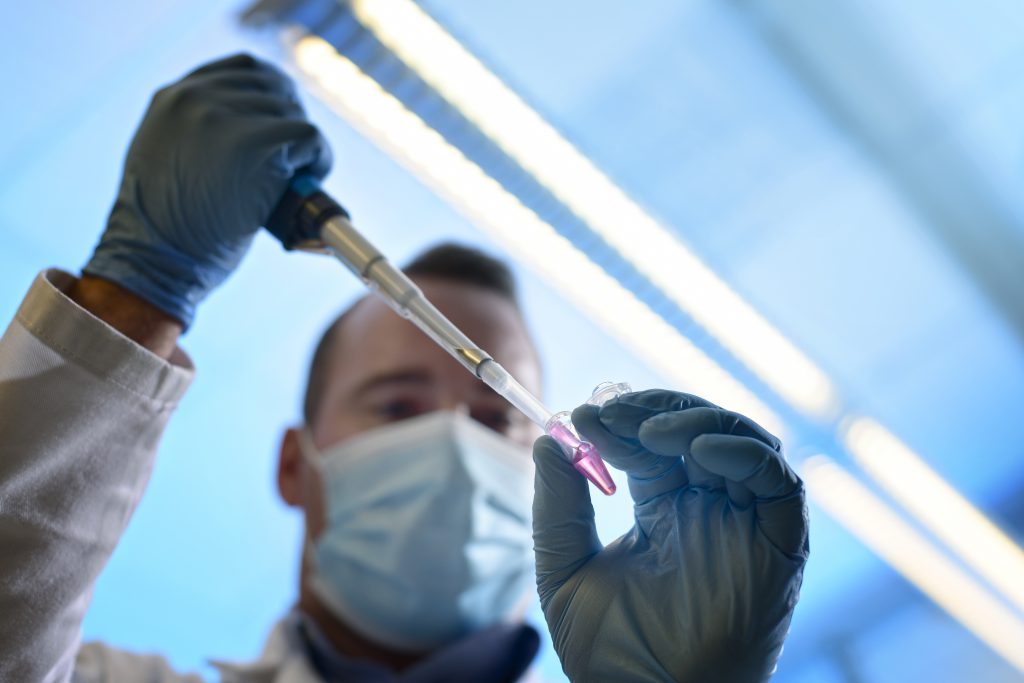Global private investment in deep tech startups rose by more than 20% per year, each year from 2015 to 2018. Tracking the most successful of these investments allows us to gain an understanding of where deep tech might go next. Saudi Arabia’s 2030 vision is a Saudi Arabia focused on knowledge and free from dependency on oil—making deep tech and the development of new, more sustainable technologies a priority for the country.
These five noteworthy deep tech startups from King Abdullah University of Science and Technology (KAUST) are poised to change the way we live and advance the 2030 vision through innovation in the agriculture, robotics, energy and environmental fields.
1) Red Sea Farms: Agriculture with salty water

Across the globe, 70% of freshwater is used for agriculture. Yet only 1.2% of Earth’s water is usable freshwater. Red Sea Farms was founded to take on the challenge of water conservation in food growth—especially in the desert where freshwater is even more limited. Under the direction of AgTech expert Ryan Lefers and plant scientist and KAUST Professor Mark Tester, Red Sea Farms has developed salt-tolerant vegetables and greenhouse technology to reduce the carbon footprint of food growth.
Red Sea Farms was founded in 2018 at KAUST after two major deep tech advancements. First, Red Sea Farms developed salt-tolerant organic tomatoes that can use salty water rather than pure freshwater. Then, the company developed a greenhouse system that uses saltwater cooling technology and remote monitoring to make sure each plant gets the nutrients it needs without too much human intervention. Overall, this reduces the freshwater and energy requirements of crop growth by up to 10 times.
Learn more by visiting Red Sea Farm’s website.
2) NOMADD: Water-free solar panel cleaning

Upkeep of a solar array is challenging, thanks to the desert environment in Saudi Arabia. NOMADD’s automated cleaner bots simplify solar array upkeep by dusting the solar panels mechanically. Traditionally, technicians have to be sent to the array site with freshwater and tools to clean each panel on a regular basis. And, with each cleaning, the technicians run the risk of accidentally damaging the panels. NOMADD’s bots take all potential hazards and roadblocks out of the equation, thanks to their design and automation.
Georg Eitelhuber and Cliff Barrett’s automated robot system cleans an entire array within two hours using no water or manual labor. Their system is installed on the understructure of a solar panel and the lack of manual labor and water reduces the long-term cost, carbon footprint, and dangers of array upkeep. Recently, NOMADD partnered with NEOM to help the city of the future reach its solar power goals and further the use of sustainable energy as the main source of power in Saudi Arabia.
Learn more by visiting NOMADD’s website.
3) Uvera

Food spoilage accounts for 8 to 10% of the greenhouse gasses released and is the number one reason for food waste in the U.S. In addition to the environmental impact, food waste also costs a family of four in the U.S. up to $2,275 annually. To solve this waste, Uvera’s IoT-enabled kitchen device offers a chemical-free method of prolonging the shelf-life of perishable goods.
Uvera founder and Forbes 30 under 30 member Asrar Damdam developed a UVC light that kills the surface bacteria on perishable food, extending the shelf life of things like fruit by 123%. Her long-term goal in founding Uvera is to assist in the UN challenge to cut food waste by 50% by the year 2030.
Learn more by visiting Uvera’s website.
4) Natufia: Fully automated indoor gardens

Extreme weather events are getting progressively more common for our climate and have an undeniable link to crop loss. Natufia’s Smart Garden allows families and restaurants to grow fresh food in their kitchens regardless of outdoor climate or rainfall levels. This deep tech startup’s systems also protect us from the global supply chain issues and labor shortages that have limited our ability to rely on the supermarket for produce.
Gregory Lu founded Natufia in 2014 to offer an indoor solution to non-GMO, pesticide-free food growth. The Smart Garden and new Natufia One are both fully automated indoor planters that reduce the water requirements and eliminate weather concerns from produce growth.
Learn more by visiting Natufia’s website.
5) FalconViz: 3D topography renderings

FalconViz’s advanced drone-based service technology creates accurate renderings of construction sites faster than the traditional method. For example, the Al Balad World Heritage Site sits on over 200,000 acres of land. Before it was built, the whole plot needed to be surveyed to determine usable space and preservation areas. While surveying that amount of land by hand and foot would have taken months, it took just days for FalconViz.
In 2014, Mohamed Shalaby created drone data processing software that could take acres’ worth of data and form a 3D map of the space in just hours. Then in 2015, he founded FalconViz at KAUST to offer drone data processing and construction project management software to the construction businesses of Saudi Arabia.
Learn more by visiting FalconViz’s website.
Work with KAUST Innovation to build your deep tech startup
Deep tech startups have a goal of advancing the world through problem-solving in key industries like the environment, agriculture, and technology. Whether you’re a scientist or student, KAUST facilitates the innovation process – from idea through to impact – to can help solve real-world problems. Our deep tech ecosystem brings investors, researchers, industry leaders, and entrepreneurs together to transform Saudi Arabia and the world.

